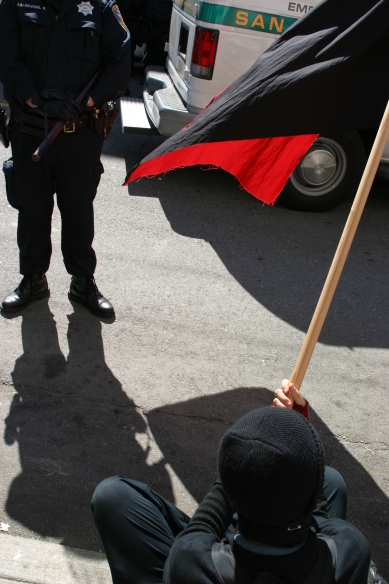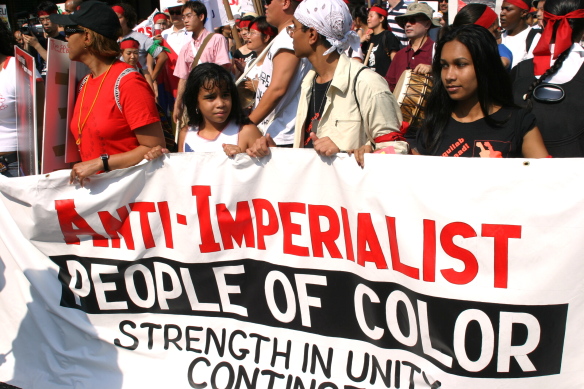Joram jojo:

At the Hague, a delegation from Lango, Acholi, teso and Madi Community Leaders from Northern Uganda
Why the war has persisted
The war has lasted for nearly 19 years because of a number of interrelated factors. To begin with, the war in Acholi has become an extension of regional and international power struggles. On the regional front, Uganda provided military hardware and sanctuary to the SPLA. In retaliation, the Sudan government provided sanctuary and military hardware to the LRA. On the international front, both the Uganda government and the SPLA received military and political support from the US, in part to curtail the influence of the Islamic government in Khartoum. Another factor perpetuating the conflict has been that the war has become a lucrative source and cover for clandestine income for high-ranking military and government officials and other profiteers. In addition, the unwillingness of the government and the LRA to genuinely pursue a negotiated settlement has sustained the war.

LRA Chairman Joseph Kony

LRA elite unit

UPDF killers and their american master
On 14-16 April 2005, leaders of the Lango; Acholi; Iteso and Madi communities of northern Uganda visited the International Criminal Court in The Hague, the Netherlands, at the invitation of Chief Prosecutor Luis Moreno-Ocampo to hear views about the situation in Northern Uganda.
The delegation held talks with Prosecutor Moreno-Ocampo and other Court officials and have agreed to the following statement.
Joint Statement:
The Lango; Acholi; Iteso and Madi community leaders and the Prosecutor of the International Criminal Court have agreed to work together as part of a common effort to achieve justice and reconciliation, the rebuilding of communities and an end to violence in Northern Uganda.
The community leaders reach out to local communities, the Government of Uganda, national and international actors to join this common effort.
We urge the Lord’s Resistance Army members to respond positively to the appeal to end violence.
We appeal to the Government of The Sudan to continue cooperating with the Government of Uganda, the ICC, international actors and all stakeholders in an effort to bring peace to Uganda.
In working towards an end to violence, all parties agreed to continue to integrate the dialogue for peace, the ICC and traditional justice and reconciliation processes.
We call upon national and international actors to enhance interventions to alleviate the grave humanitarian situation in the region.
List of Delegates from Northern Uganda
Acholi Representatives
Rwot David Onen Acana II, Paramount Chief of the Acholi
Rt. Rev. Onono-Onweng, Bishop of Northern Uganda
Hon. Jacob Oulanyah, MP Omoro Country
Hon. Hillary Onek, MP of Lamwo County
Mr. Ojwee Nahaman, LCV Kitgum
Mr. Komakach Yakobo, LCV Pader
Mr. Ojera Christohper, LCIII Pabbo
Mr. Ogik Benjamin Okech, Traditional Elder
Mr. Omona AlFone Lukilamoi, Traditional Chief
Lango Representatives
Hon. Cecilia Atim-Ogwal, MP Lira Municipality
Hon. Among Betty Ongom, MP Women Representative Apac
Margaret Akullo Elem, Traditional Elder
Rt. Rev. John Charles Odurkami, Bishop of Lango
Father Okucu Lawrence, Vicer General of Lira
Ogwang Tonny Ariz, Lira District Minister for Disaster Preparedness and Security
Iteso Representatives
His Highness Augustine Lemokul Osuban, Traditional Chief of the Iteso (Emorimor)
Hon. Anyolo Samuel, MP Soroti County
Hon. Alice Alaso, MP Women Representative Soroti
Rt. Rev. Charles Bernard Obaikol-Ebitu, Bishop of Soroti
Father Robert Ecogh, Soroti Catholic Diocese
Mr Steven Ilemukorit Okure, LCV of Katakwi
Madi Representatives
Hon. Jesca Eriyo, MP Women Representative Adjumani
Mondia Phillips, District Vice Chairman
Angela Kabba, Women Representative from Adjumani
Stop Acholi Genocide Demo in London



































